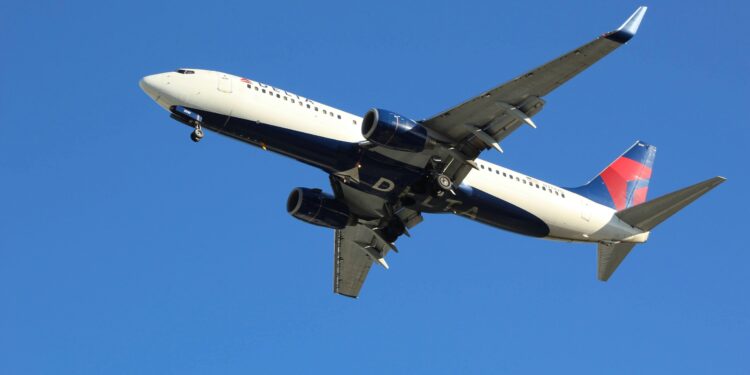CEO Ed Bastian Discusses Financial Impact and Recovery Efforts
Delta Airlines (DAL) is grappling with significant financial repercussions following a global tech outage this month that disrupted emergency services, communications, and thousands of businesses worldwide. Speaking on CNBC, CEO Ed Bastian revealed that the airline faces approximately $500 million in costs related to the incident.
The Financial Toll
Bastian explained that the hefty sum encompasses lost revenue as well as substantial expenses incurred during the five-day disruption. “The monetary amount represents lost revenue as well as the tens of millions of dollars per day in compensation and hotels,” he stated.
The outage, attributed to a bug in an update pushed out by cybersecurity firm CrowdStrike, severely impacted Delta’s operations. The bug led to the dissemination of faulty data to millions of customer computers, triggering the widespread tech failure that grounded flights, interrupted TV broadcasts, and disrupted services in banks, hospitals, and retailers.
Root Cause and Preventative Measures
CrowdStrike, responsible for the cybersecurity update that caused the outage, has since taken measures to prevent a recurrence. The company outlined several steps, including:
- Staggered Rollouts: Implementing staggered rollouts of updates to avoid widespread disruption.
- Enhanced Customer Control: Giving customers more control over the timing and location of updates.
- Detailed Update Information: Providing comprehensive details about upcoming updates to customers.
These measures aim to enhance the reliability of future updates and prevent similar incidents from affecting critical systems globally.
Delta’s Operational Struggles
Among the various industries affected by the outage, Delta Airlines experienced the most severe operational disruptions. The incident forced the cancellation of thousands of flights as key systems were crippled. The airline struggled to recover, leading to significant delays and widespread customer dissatisfaction.
The U.S. Department of Transportation (DOT) has launched an investigation into why Delta’s recovery lagged behind other airlines. Transportation Secretary Pete Buttigieg announced that the DOT would examine Delta’s customer service practices during the outage, highlighting “unacceptable” wait times for assistance and reports of unaccompanied minors stranded at airports.
Seeking Compensation
Bastian emphasized that Delta will be pursuing damages for the disruptions caused by the outage. He noted that, so far, CrowdStrike has not offered any financial compensation to Delta, though it has provided free consulting advice to help the airline mitigate future risks.
“We will be seeking damages from the disruptions,” Bastian stated on CNBC. He added that the financial impact extends beyond immediate costs, as the airline must also address long-term customer trust and loyalty issues stemming from the incident.
Broader Industry Impact
The outage’s ripple effects were felt across multiple sectors, demonstrating the critical importance of robust cybersecurity measures. For airlines, the incident underscored the vulnerabilities inherent in their reliance on complex, interconnected systems. Delta’s experience serves as a stark reminder of the potential consequences when these systems fail.
The DOT’s investigation into Delta’s response and customer service during the outage aims to identify areas for improvement and ensure that airlines are better prepared to handle similar incidents in the future. The findings could lead to regulatory changes designed to enhance the resilience of airline operations against cyber threats.
Moving Forward
In the wake of the outage, Delta is focused on rebuilding its operations and restoring customer confidence. The airline has implemented several immediate measures to improve its response to future disruptions, including:
- Enhanced Communication: Improving communication channels with customers to provide timely updates and assistance.
- Increased Staffing: Bolstering staffing levels at customer service centers to reduce wait times.
- Operational Reviews: Conducting thorough reviews of operational procedures to identify and address vulnerabilities.
Bastian remains optimistic about Delta’s ability to recover and emerge stronger from the incident. “We are committed to learning from this experience and implementing the necessary changes to ensure our systems and processes are more resilient,” he said.
Conclusion
The $500 million cost faced by Delta Airlines due to the global tech outage highlights the significant impact of cybersecurity failures on critical infrastructure. As Delta navigates the aftermath, the airline’s focus on seeking damages, improving customer service, and enhancing operational resilience will be crucial in restoring its reputation and financial stability. The broader industry must also take heed, prioritizing robust cybersecurity measures to safeguard against future disruptions.
You might like this article:Turbulent Skies Ahead: Kelly Ortberg Takes Helm at Boeing Amidst Financial Struggles











